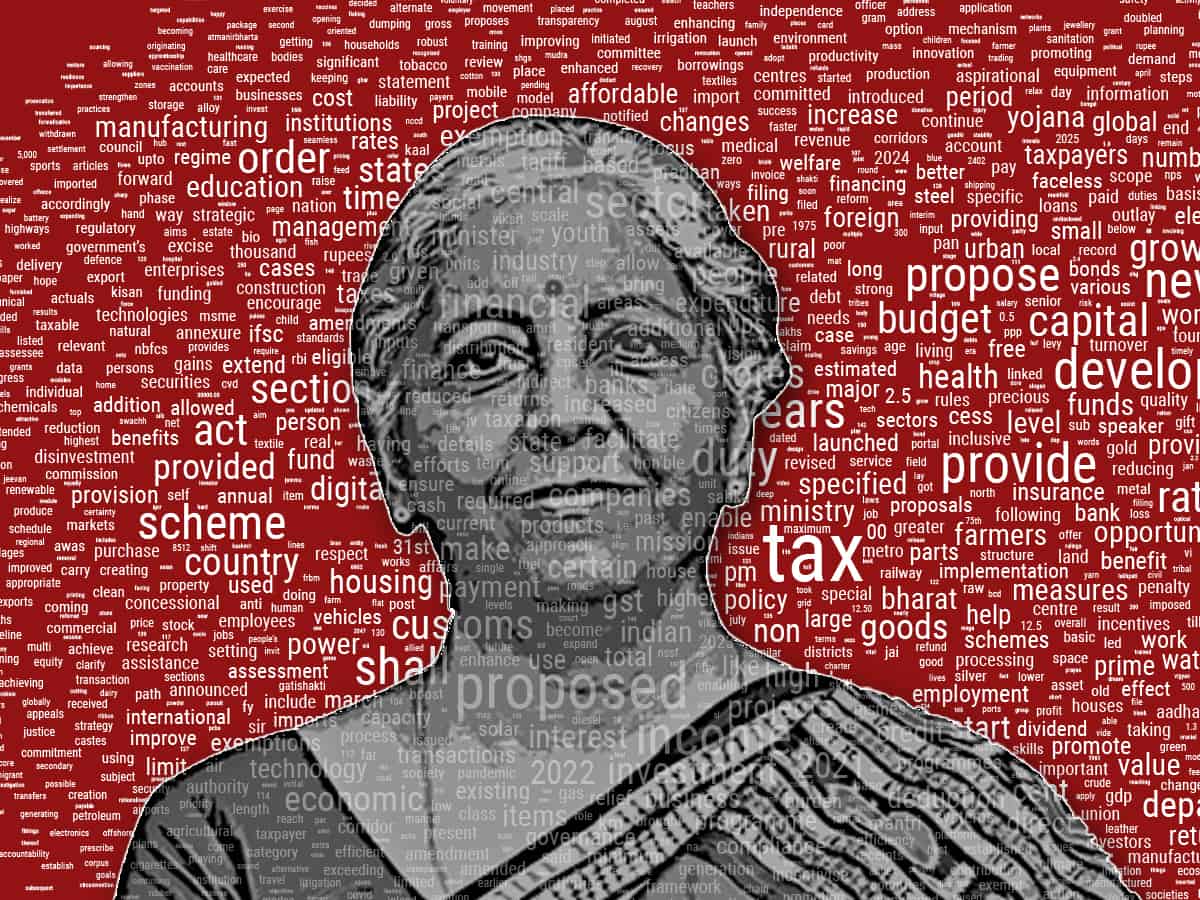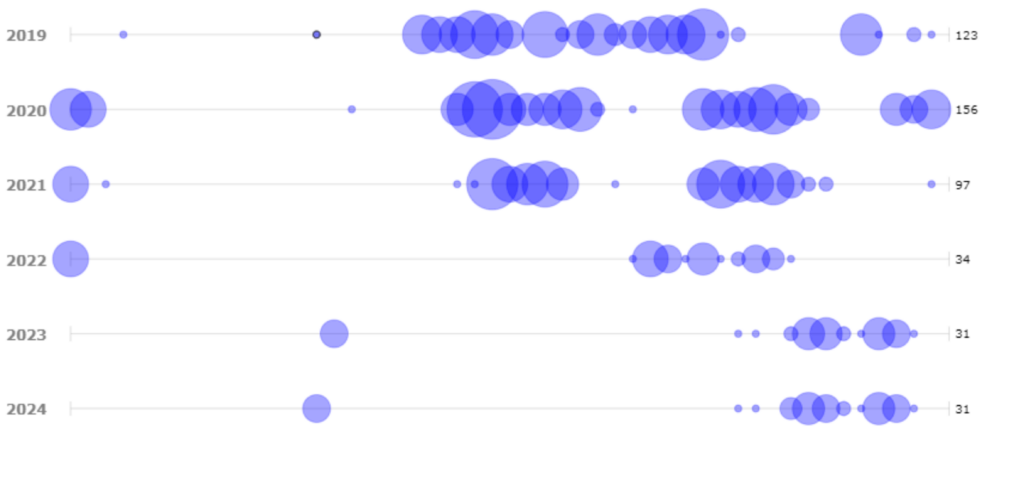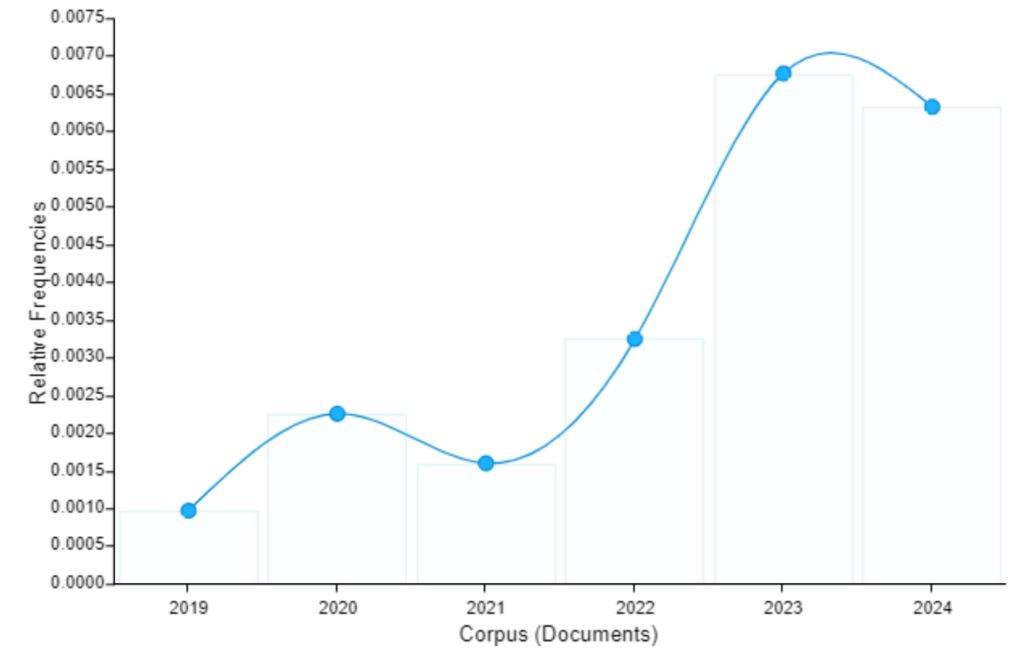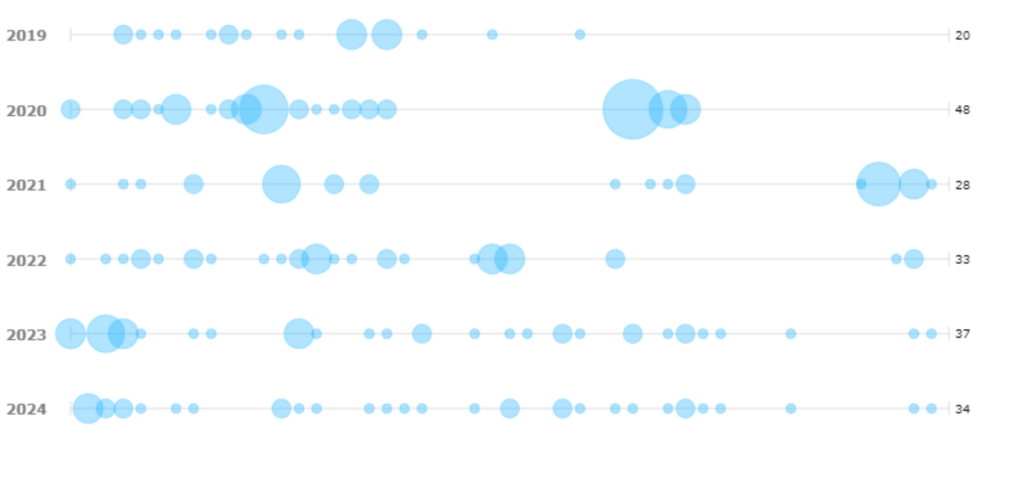
Hyderabad: Finance Minister Nirmala Sitharaman presented the Union Budget 2024 in the Lok Sabha on February 1. This was an interim budget as the Lok Sabha Election are scheduled in a few months.
The Budget did not bring any relief for middle-class tax payers as no changes were made in old and new tax regimes. Even as it was largely in line with the interim budgets, the industry is surprised at no change in taxes for financial year 2024-25.
The word ‘tax’ was spoken the most number of times during Nirmala Sitharaman’s Budget speeches since she became finance minister in 2019. However, the usage of the word saw a sharp decline in the 2024 Budget speech as LS elections are nearing.
An analysis of her Budget speeches over the years reveals that the word ‘tax’ was used 472 times. The usage of the word was more frequent years following the 2019 elections. The usage of ‘tax’, however, declines as new elections neared and the word ‘development’ was more frequently used.

As Sitharaman presented the last Budget before the 2024 Lok Sabha elections and delivered her shortest Budget speech, the word ‘tax’ was used only 31 times and ‘development’ was used 34 times.


Words reflect changing priorities?
Looking into the future, the 2024 Budget speech by Sitharaman, spanning 58 minutes, prominently emphasised optimistic terms such as ‘opportunity’, ‘development’, and ‘economy’ while noticeably curbing the utilisation of words like ‘tax’, ‘duty’, and ‘GST’.
The alterations in the frequency of certain words in the Budget speeches over the years reflects a shift in focus, showcasing a disparity that sheds light on the evolving narrative within the budgetary discourse.
‘Tax’ follows a pattern
The term ‘tax’ in Budget speeches follows a discernible cycle, evident by an analysis of speeches delivered by former finance minister of India, Arun Jaitley. A consistent pattern emerges, where the usage and frequency of the word ‘tax’ peak immediately after elections and subsequently experience a sharp decline in the year leading up to the next electoral cycle.



